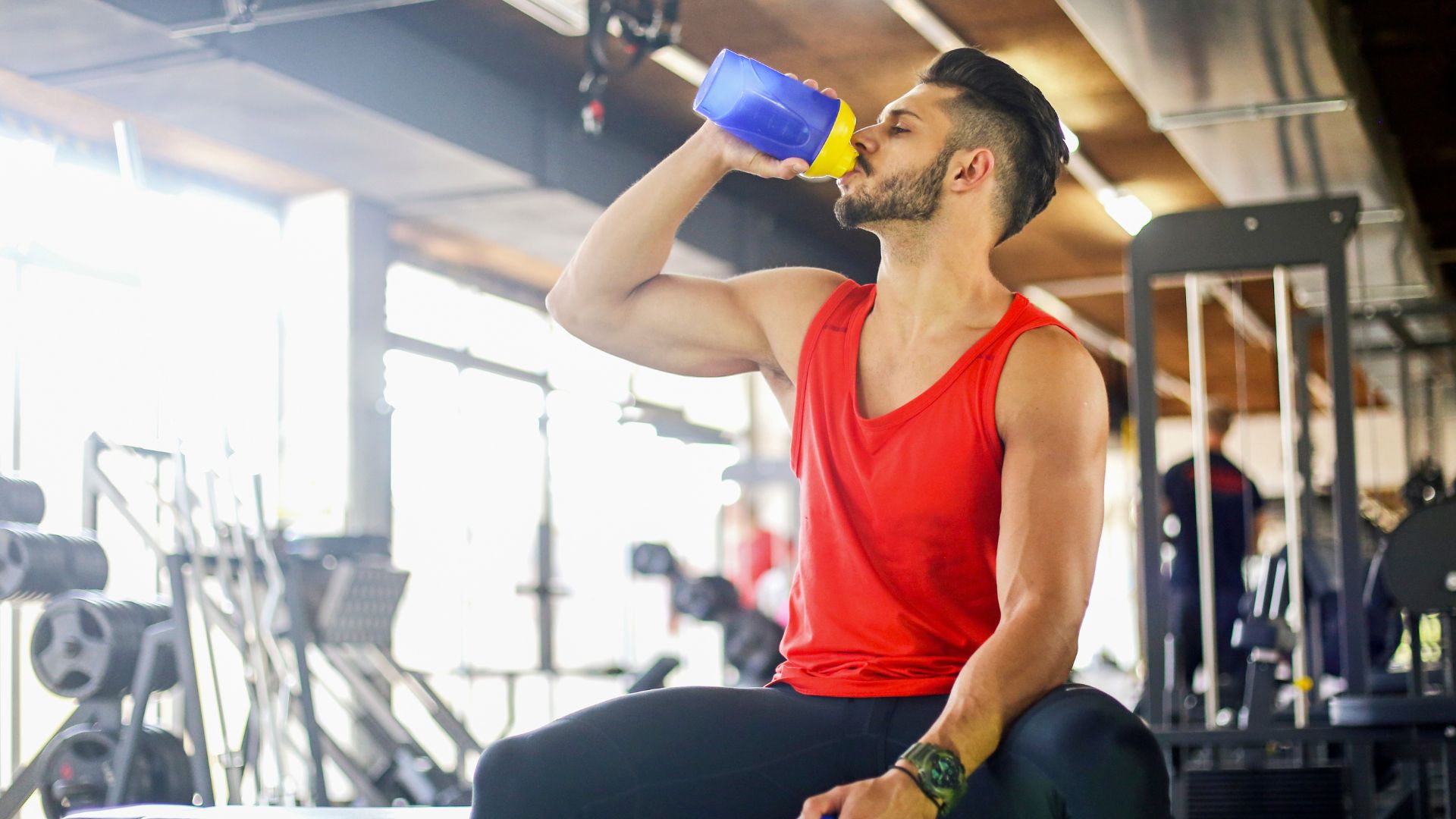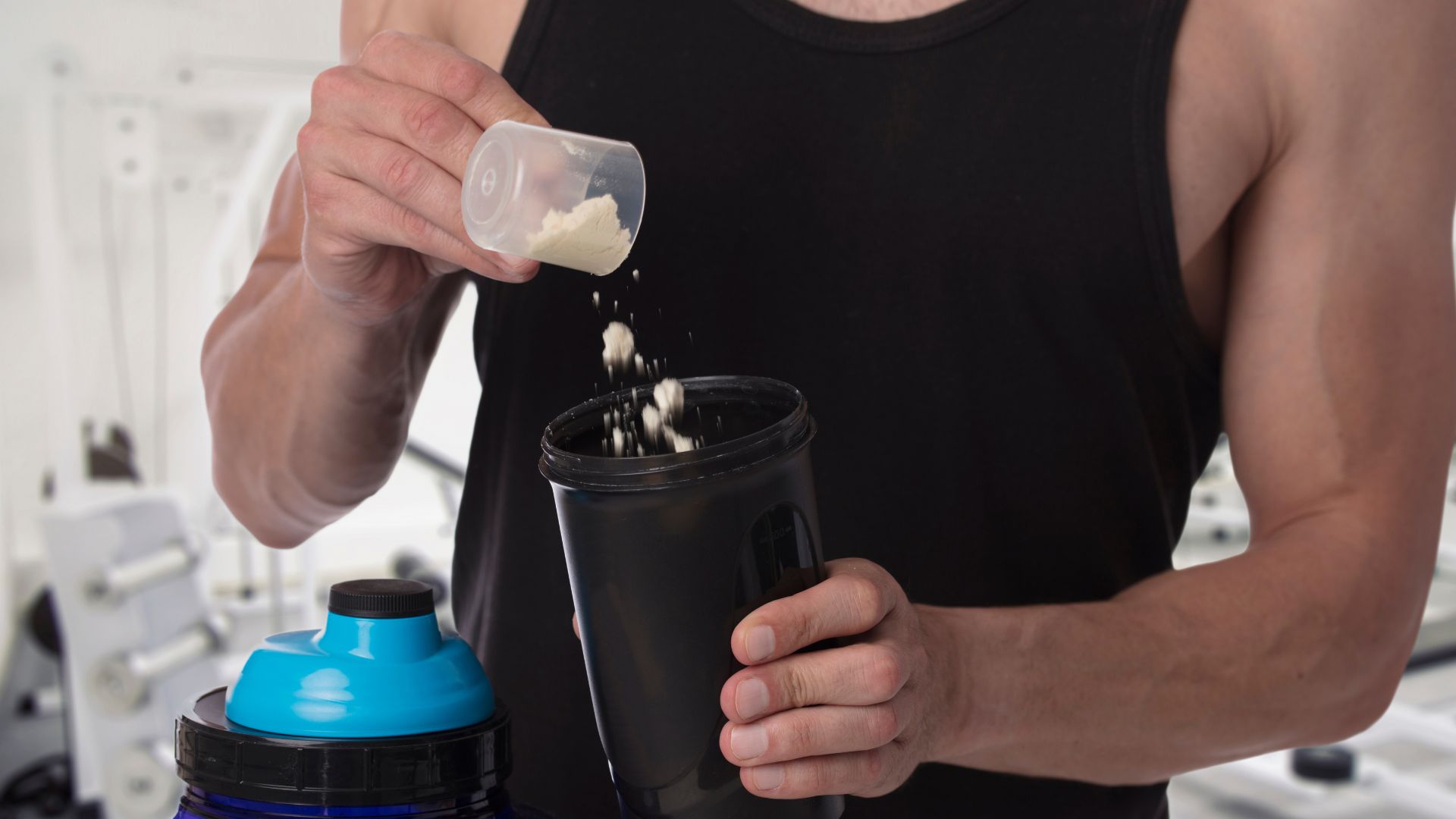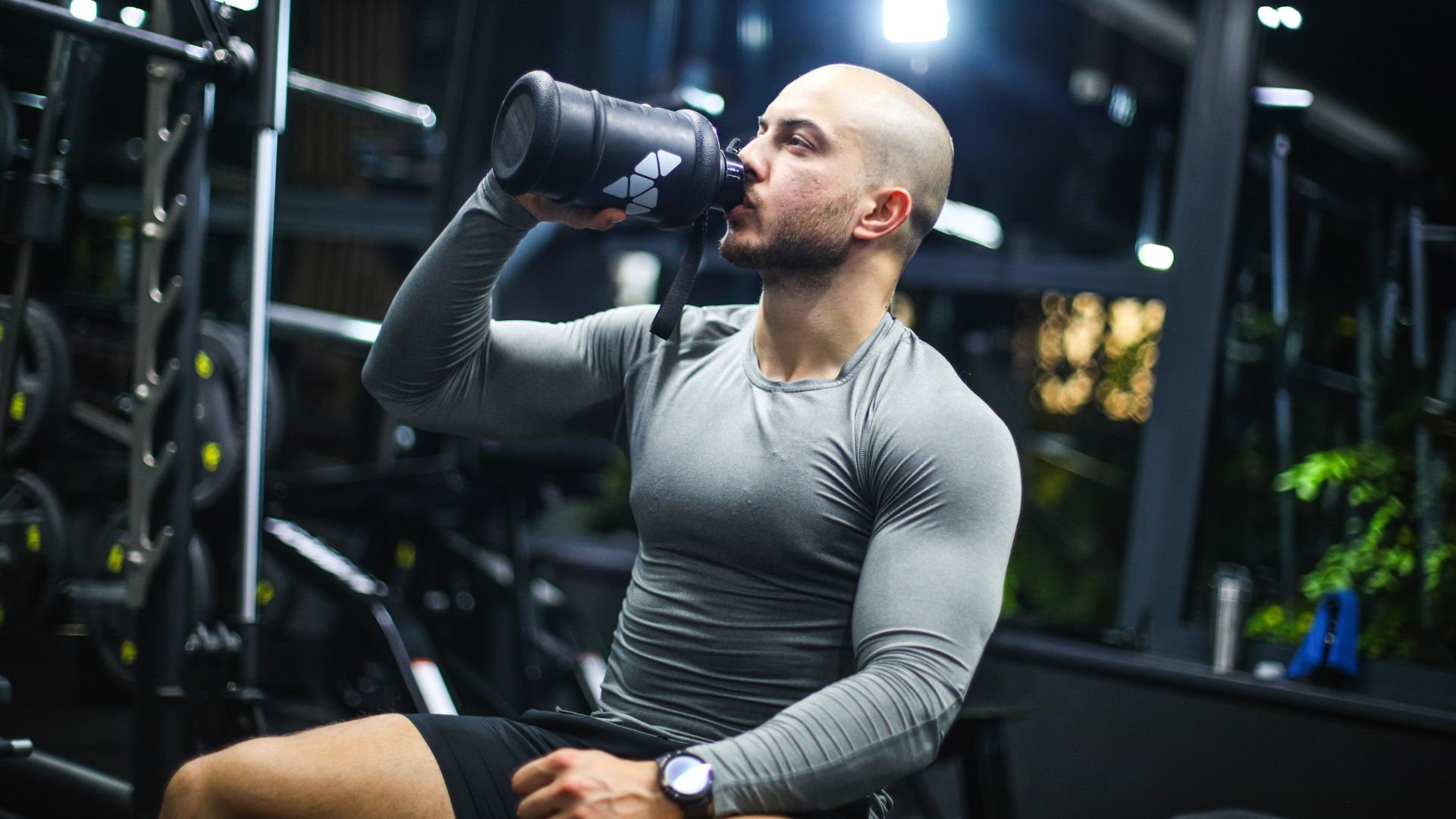
Whether the energy is lacking, or you’ve got a hardcore session that you need to smash, the best pre-workout can help. “Pre-workout supplements are designed and intended to enhance performance and 'energy' before exercise, and contain a mix of ingredients to help do so,” says Myprotein Nutritionist, Jamie Wright.
Just like creatine and protein powder, pre-workout is one of the most popular sports supplements on the market. But what are the benefits of pre-workout? How often should you take it, and when? More importantly, is pre-workout bad for you?
Read on for everything you need to know about pre-workout, as well as a quick roundup of our favourite ones.
Best pre-workout: our pick
These little pre-workout shots contain 175mg of caffeine and are super handy for when you don't want to consume too much liquid before your workout. After just 10 minutes we could instantly feel it kick in, as our hands became particularly tingly. Just be warned, this drink is super sweet, so you will literally want to shot it back.
This is a great stim-free pre-workout for those who train late, or find caffeine doesn't settle well with their stomach. We experienced a slight itching sensation, but definitely not as much as other pre-workouts, but had a great boost of energy. The only downside is it's only available in one flavour, sour apples, the upside is it tastes great.
C4 proudly don the 'Informed-Sport' logo, as every batch of their pre-workout is tested for banned substances. This contains an adequate 150mg of caffeine, as well as creatine, electrolytes and amino acids to help you power through your training. We thought the blue raspberry tasted banging, but we know it's an acquired taste. Luckily, there's plenty of flavours to choose from.
What is pre-workout and what’s in it?
In a nutshell, pre-workout is a supplement that gives you an energy boost. It comes in a variety of forms, such as powder, drinking shots and even gummy sweets, with powder (often) being the most popular.
Caffeine is the key ingredient in pre-workout, as this is what gives you that much-needed energy boost, followed closely by creatine. “Caffeine enhances alertness and delays fatigue by stimulating the central nervous system,” explains Jamie. “Creatine is included for its benefits to increase muscle mass, strength, and power output.”
Beta-alanine is another common ingredient, that Jamie says “helps combat muscle fatigue by increasing carnosine levels in muscles”.

Other ingredients include amino acids (such as BCCAs), nitric oxide precursors (such as L-arginine and L-citrulline), which help improve blood flow to muscles, enhance oxygen and nutrient delivery. Plus, you’ve got additional vitamins and minerals like B vitamins for energy metabolism and electrolytes for fluid balance.
"In the right formulations and with the right forms and doses, these components work collectively to better optimize various aspects of workout performance, including energy levels, endurance, strength and recovery," says Jamie.
Is pre-workout bad for you?
“As with anything it depends on the person and how the product is ultimately used (or, in some cases, abused),” says Jamie.
The primary ingredient he says people need to be wary of is the caffeine. “For some, this may cause elevated levels of anxiety or disruptions to their sleep. But, for others, it may cause heart palpitations and changes in blood pressure,” he says.
The Food and Drugs Administration has cited that 400mg of caffeine a day as an amount for healthy adults (that's four to five cups of coffee). Jamie says it’s therefore very important that individuals who are more susceptible to stimulants to be aware of the content of the pre-workout they are ingesting.
Are there any side effects?

You may experience some side effects with pre-workout but, then again, you may not. Ultimately, it depends on the type of pre-workout you’ve chosen and may differ from person to person.
Jamie says common side effects can include jitters, a racing heartbeat, and difficulty sleeping, (that’s if you’ve taken your pre-workout late in the day). “Some might also experience digestive upset, like nausea or diarrhea, especially if the supplement has a lot of artificial additives too, or higher levels of certain electrolytes in particular forms (such as magnesium oxide),” he adds.
The other most common side effect is getting an itchy, tingling sensation, which is often experienced on your face, hands, and neck. This is an effect called paresthesia and it can occur when pre-workout contains beta-alanine. “This usually kicks in shortly after taking pre-workout and it fades away after an hour or so,” says Jamie. “Some people might not mind it, and it's often seen as a sign that the supplement is kicking in.”
How to take pre-workout
If you’ve brought a pre-workout powder, always read the instructions on the back of the packaging as to how much you should take, and when. Typically, you’ll mix a scoop of pre-workout into water and then consume it anywhere between 30 minutes to an hour before your workout.
Pre-workout shots don’t require any mixing, and are usually consumed between 20 to 30 minutes before a session. If you’d rather pre-workout gummies, again, check how many you need to eat for a single serving, as this will differ from brand to brand.
How often should I take pre-workout?
“If you are taking a stimulant based pre-workout I would reserve it only for the times that you feel you actually need it,” says Jamie. You don’t want your body to build up a tolerance to it, otherwise you won’t experience its benefits. Jamie advises also taking it earlier in the day, if you can, so that it doesn’t disrupt your sleep.
Non-stimulant pre-workouts (that don’t contain caffeine) Jamie says this is fine to consume before virtually any workout.

Should you dry-scoop pre-workout?
Dry scooping – where you basically shot a scoop or pre-workout powder without any water – has become increasingly popular due to social media and fitness influencers doing it. However, it is not safe and should be avoided.
"Dry scooping can lead to a rapid increase in heart rate and blood pressure due to the concentrated dose of caffeine hitting the system all at once," says Jamie. "Additionally, it poses a risk of choking and can irritate the respiratory tract."
What's a non-stimulant pre-workout?
As we mentioned previously, this is a pre-workout that doesn’t contain caffeine, so it’s a great option for those who train in the evening and find that regular pre-workout disrupts their sleep, or stomach.
“They work by enhancing blood flow to your muscles through nitric oxide precursor ingredients like citrulline, or arginine,” says Jamie. “This improved circulation delivers more oxygen and nutrients to your muscles, enhancing endurance, performance and recovery.”
Many will still contain all the other ingredients that you’ll find in normal pre-workout – such as creatine, beta-alanine, electrolytes and vitamins – so, you get the workout benefits, just without the buzz or crash that stimulants can bring.







